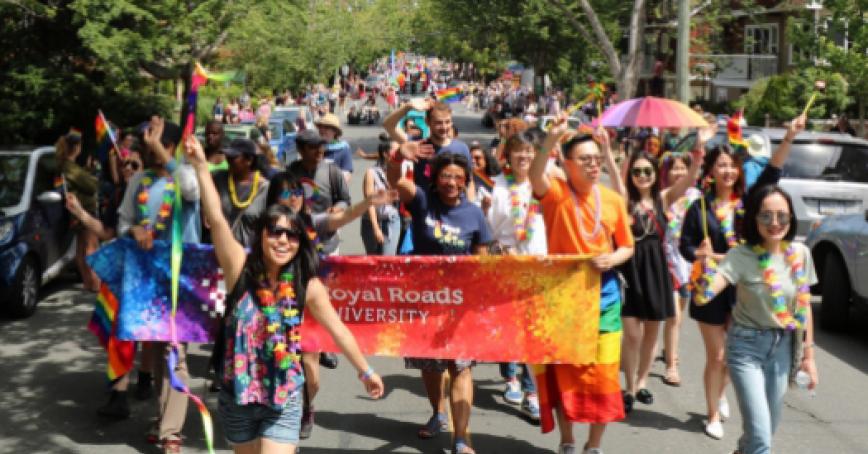Celebration and struggle: 50 years of Pride

Every year, Pride brings both celebration and struggle. This one does in particular, for me.
This month, Botswana, where I was born, decriminalized homosexuality. Although there is a long way to go, it is a great victory for the LGBTQ2SIA+ community I count myself a member of.
It is also the 50th anniversary of Stonewall, a galvanizing moment in the queer liberation movement that spread beyond the borders of the Village, New York City and even North America. LGBTQ2SIA+ people and allies all over the world still reflect on its legacy and meaning.
We’re grappling with how Pride can represent the continuing struggle against discrimination, injustice, fear and hate, but also the rich, joyous diversity of human sexuality, sex and gender identity.
It shouldn’t require bravery for any of us to dress, speak and act in the way that reflects our true selves and our honest identities, or to simply express our affection in public. It took tremendous courage in 1969, and despite the progress we’ve made a full half-century later, it often still does today.
But as we’ve seen in the dangerous turn in policies and attitudes in a number of countries, it’s beyond fighting for the ability to hold hands in public. Two-Spirit, trans and gender-diverse people are fighting, moment to moment, for their lives — their basic human rights in question. Black trans women in America have an average life expectancy of 36. Yet the queer community has relied on this marginalized population for so much of our progress today.
To be truly inclusive, everyone has to be at the table, especially those often left out of Pride and its legacy: trans people; Black, Indigenous and people of colour; people who are disabled, neurodivergent, or have bodies not considered attractive by mainstream society; and many others.
At Royal Roads, we continue our journey toward fostering an inclusive environment for work, research and study — one in which people can bring their entire self to a workplace that reflects the diverse community we serve.
Though celebration is much needed, I know that our Royal Roads LGBTQ2SIA+ faculty, staff and students don’t just wear rainbows once a year; they conduct important research, teach, publish, reclaim history, make art and lead our university in the spirit of change-making.
To everyone in Royal Roads’ LGBTQ2SIA+ community, I am proud of you and honoured to work with you.